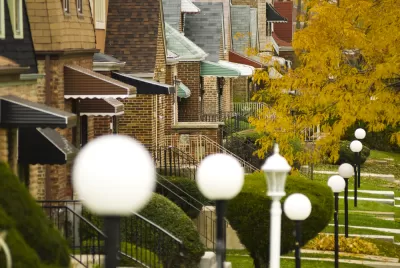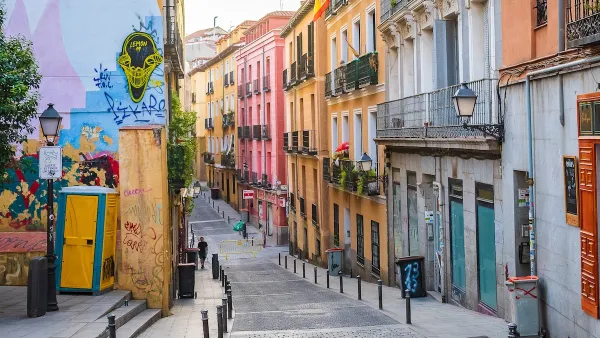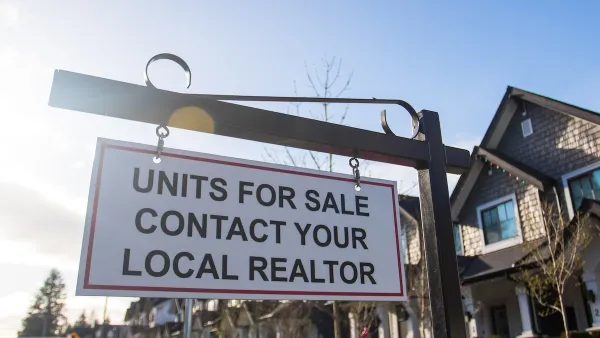More than violent crime or employment rates, foreclosure has largely driven the exodus of hundreds of thousands of Black residents from the city.

In "the first econometric analysis of the variety of factors that might be pushing Black residents out of the Windy City," researchers "found that foreclosures were the best predictor of Black population loss in Chicago" between 2010 and 2018.
"The authors and Loury are not arguing that violent crime, or other social ills, aren’t a factor in Black flight," writes Jake Blumgart, reporting on the study in Governing. But other factors have long-term effects that can take years to lead to displacement. "A family can live amid gun violence for years, but the effect of foreclosure is immediate." Simply put, writes Blumgart, "You can’t stay in the neighborhood if you don’t have a home."
Journalist Alden Loury "points out that two of the communities that have seen the steepest decline in Black population, Englewood and West Englewood on Chicago’s South Side, were also at the heart of the city’s foreclosure crisis."
"The authors suggest interventions like reducing penalties for overdue residential property taxes and policies like Philadelphia’s Longtime Owner Occupants Program, which cap taxable value on a home for long-term homeowners under 150 percent of area median income." They also suggest robust public awareness campaigns to make residents aware of these programs.
FULL STORY: Foreclosure Crisis Driving Black Flight in Chicago: Study

Planetizen Federal Action Tracker
A weekly monitor of how Trump’s orders and actions are impacting planners and planning in America.

Maui's Vacation Rental Debate Turns Ugly
Verbal attacks, misinformation campaigns and fistfights plague a high-stakes debate to convert thousands of vacation rentals into long-term housing.

Restaurant Patios Were a Pandemic Win — Why Were They so Hard to Keep?
Social distancing requirements and changes in travel patterns prompted cities to pilot new uses for street and sidewalk space. Then it got complicated.

In California Battle of Housing vs. Environment, Housing Just Won
A new state law significantly limits the power of CEQA, an environmental review law that served as a powerful tool for blocking new development.

Boulder Eliminates Parking Minimums Citywide
Officials estimate the cost of building a single underground parking space at up to $100,000.

Orange County, Florida Adopts Largest US “Sprawl Repair” Code
The ‘Orange Code’ seeks to rectify decades of sprawl-inducing, car-oriented development.
Urban Design for Planners 1: Software Tools
This six-course series explores essential urban design concepts using open source software and equips planners with the tools they need to participate fully in the urban design process.
Planning for Universal Design
Learn the tools for implementing Universal Design in planning regulations.
Heyer Gruel & Associates PA
JM Goldson LLC
Custer County Colorado
City of Camden Redevelopment Agency
City of Astoria
Transportation Research & Education Center (TREC) at Portland State University
Jefferson Parish Government
Camden Redevelopment Agency
City of Claremont





























